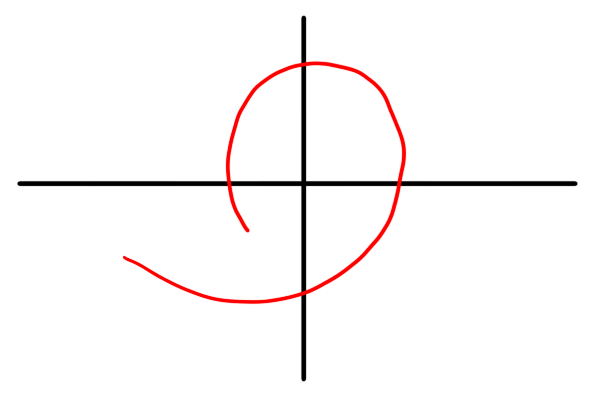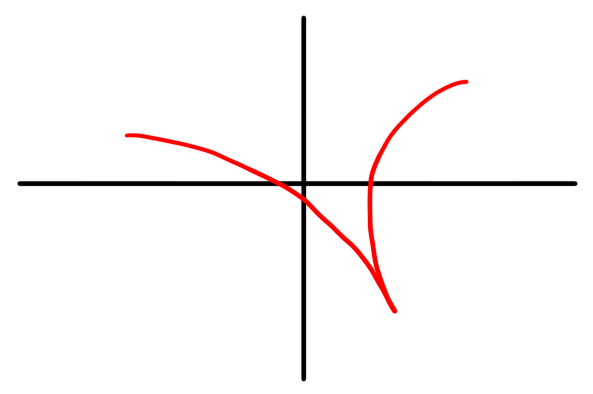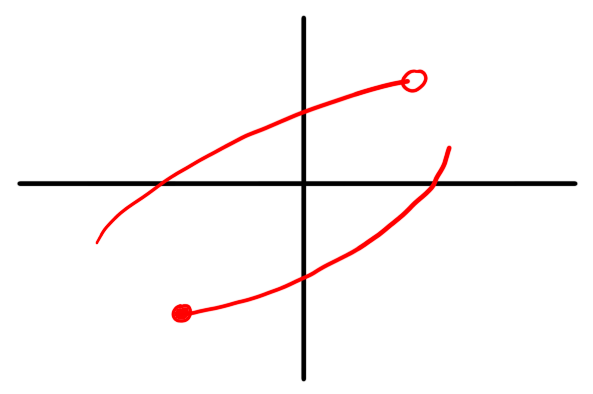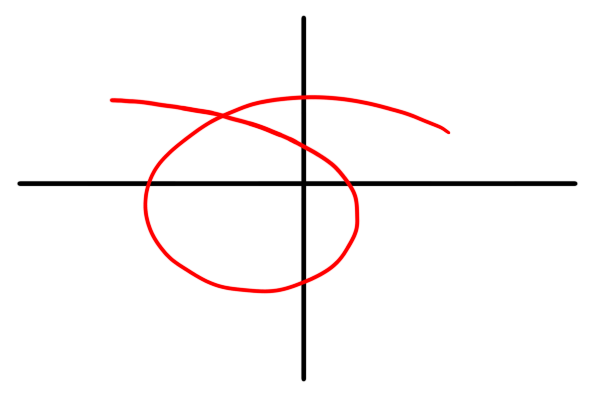\[
\newcommand{\Arg}{\mathsf{Arg}}
\newcommand{\C}{\mathbb{C}}
\newcommand{\R}{\mathbb{R}}
\newcommand{\N}{\mathbb{N}}
\newcommand{\Z}{\mathbb{Z}}
\newcommand{\Im}{\mathsf{Im}}
\newcommand{\intd}{\,\mathsf{d}}
\newcommand{\Re}{\mathsf{Re}}
\newcommand{\ball}{\mathsf{B}}
\newcommand{\wind}{\mathsf{wind}}
\]
Week 1 Worksheet
Home | Assessment | Notes | Worksheets | Blackboard
Complex Numbers
- Find the modulus, all arguments and the principal value of the argument for the following complex numbers.
- $2i$
- $1-i\sqrt{3}$
- $-4$
- Draw the set of all $z \in \C$ satisfying the following conditions.
- $\Re(z) >2$
- $1 < \Im(z) < 2$
- $|z| < 3$
- $|z-2| < |z+1|$
Arithmetic
- What is $2+3i$ multiplied by $-5+i$?
- Write the following expressions in the form $x+iy$, $x,y\in\R$.
- $(3+4i)^2\vphantom{\dfrac{1}{1}}$
- $\dfrac{2+3i}{3-4i}$
- $\dfrac{1-5i}{3i-1}$
- $\dfrac{1-i}{1+i} -i+2$
- $\dfrac{1}{i}$
- Find all solutions of the following equations.
- $z^2 = -5+12i$
- $z^2+4z+12-6i=0$
- Let $z,w \in \C$. Prove the following statements.
- $\Re(z\pm w) = \Re(z)\pm\Re(w)$
- $\Im(z\pm w) = \Im(z) \pm \Im(w)$
- Give examples to show that neither $\Re(zw)=\Re(z)\Re(w)$ nor $\Im(zw)=\Im(z)\Im(w)$ hold in general.
- Fix $z,w \in \C$. Prove the following statements.
- $\overline{z\pm w} = \bar{z} \pm \bar{w}$
- $\overline{zw} =\bar{z}\bar{w}$
- $\overline{1 / z} = 1 / \overline{z}$ if $z \ne 0$
- $z+\bar{z}=2\Re(z)$
- $z-\bar{z} = 2i\Im(z)$
- Recall that every non-zero $z \in \C$ can be written in polar form as $r( \cos \theta + i \sin \theta )$.
- Use induction on $n$ to derive
\[
(\cos \theta + i \sin\theta)^n = \cos n\theta + i\sin n\theta
\]
for all $n \in \N$. (This is called de Moivre's Theorem.)
- Use De Moivre's Theorem to derive formulae for $\cos(3\theta)$, $\sin(3\theta)$, $\cos(4\theta)$, $\sin(4\theta)$ in terms of $\cos\theta$ and $\sin \theta$.
- Let $w_0 \ne 0$ be a complex number such that $|w_0|=r$ and $\Arg(w_0) = \theta$. Find the polar forms of all the solutions $z$ to $z^n=w_0$, where $n \geq 1$ is a positive integer.
- Let $\Arg(z)$ denote the principal value of the argument of $z$. Give an example to show that
\[
\Arg(z_1z_2) \ne \Arg(z_1) + \Arg(z_2)
\]
in general.
Distance and Limits
- A sequence $z_n$ in $\C$ is known to converge to $a$. Use the reverse triangle inequality to prove that $|z_n|$ converges to $|a|$.
- Determine whether the following sequences converge.
- $z_n = (1+i)^n \vphantom{\dfrac{1}{1}}$
- $z_n = \dfrac{(1+i)^n}{n}$
- $z_n = \dfrac{1}{(1+i)^n}$
- Prove that $z^n / n!$ converges to zero for every complex number $z \in \C$.
Paths and Domains
- Verify that $\gamma(t) = 4t^2 + 2it$ on $[1,2]$ is continuous.
- Which of the following could be the image of a path?




- Write down a formula for a path $\gamma : [0,1] \to \C$ describing a path from $2$ to $i - 1$.
- Sketch the following sets of complex numbers. Which of them are domains?
- $\{ z \in \C : \Im(z) > 0 \}$
- $\{ z \in \C : \Re(z) > 0 \textrm{ and } |z| < 2 \}$
- $\{ z \in \C : |z-2| < 1 \textup{ or } |z+2| < 1 \}$
- $\C \setminus \{ z \in \C : x\le 0 \textrm{ and } y = 0 \}$
- Let $E$ and $F$ be open subsets of $\C$. Prove that $E \cap F$ is open.
- Is the intersection of two domains always a domain? Either prove this or provide a counterexample.